Parash Mani Sapkota
In a significant contribution to the urban health system discourse, HERD International participated in the 13th European Congress for Tropical Medicine and International Health (ECTMIH) held from 20–23 November in Utrecht, Netherlands. The event, organized by the Federation of European Societies of Tropical Medicine and International Health (FESTMIH), served as a platform for the exchange of cutting-edge research and ideas in the field.
HERD International, took an opportunity to present the findings of the latest urban health studies conducted in Nepal. The studies were carried out under the Community-led Responsive and Effective Urban Health System (CHORUS) research project.
The HERD International researchers shared valuable insights and data drawn from these studies shedding light on various aspects of urban health.
Universal non-communicable disease care coverage, a challenge in urban health system of Pokhara City, Nepal
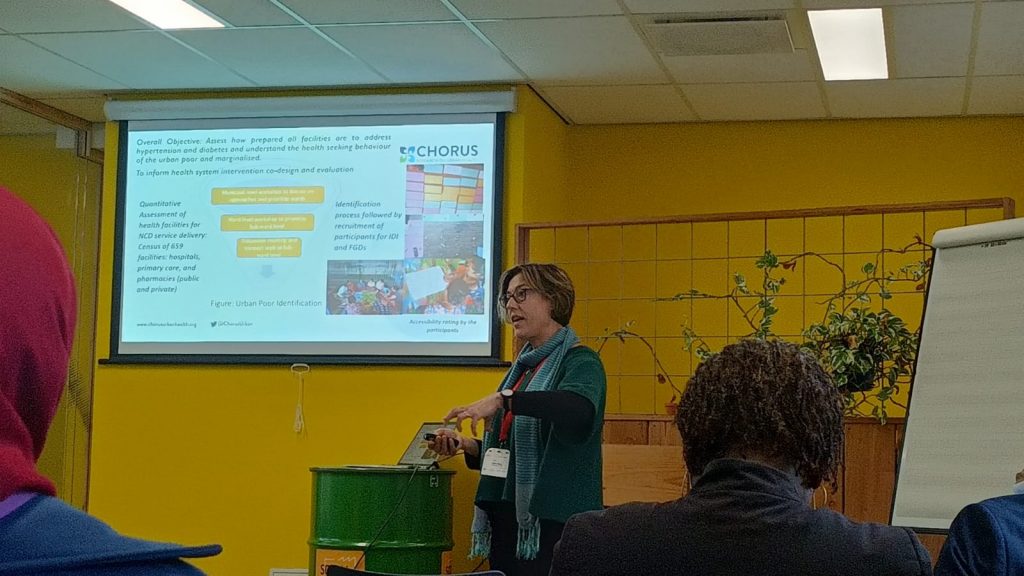
Presenter: Prof. Helen Elsey, CHORUS Co-director, on behalf of Deepak Joshi, HERD International, Nepal
Contributors: Raju Neupane, Grishu Shrestha, Parash Sapkota, Abriti Arjyal, Sushil Baral. HERD International, Nepal
HERD International as part of CHORUS, conducted extensive needs assessments to assess how prepared health facilities are to address hypertension and diabetes, and understand the health seeking behaviours of the urban poor and marginalised in Pokhara, Nepal. This included a quantitative assessment of health facilities for NCD service delivery of 659 facilities, covering hospitals, primary care and pharmacies, both public and private. The team share key findings in this presentation; significant challenges are found at community, institutional and system levels in providing universal and equitable NCD care for the urban poor populations, and in order to meet these challenges, there needs to be a multi-sectoral, coordinated approach.
Preparedness of Pharmacy to Deliver Services related to Diabetes and Hypertension in Pokhara Metropolitan City
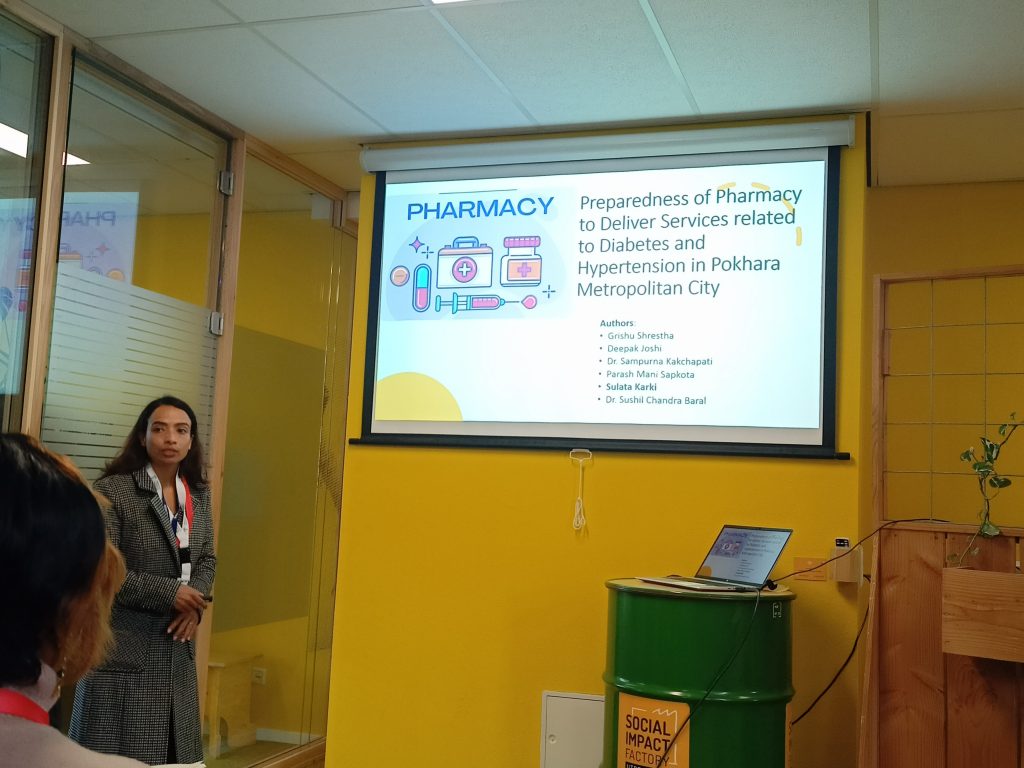
Presenter: Sulata Karki, HERD International, on behalf of Grishu Shrestha, HERD International, Nepal
Contributors: Deepak Joshi, Parash Mani Sapkota, Dr. Sampurna Kakchapati, Dr. Sushil Chandra Baral. HERD International, Nepal
HERD International, as part of CHORUS, conducted a needs assessment in all pharmacies located in Pokhara with the aim of determining the availability of services and the preparedness to deliver services related to Diabetes and Hypertension. The quantitative assessment utilized the SARA framework, developed by the World Health Organization (WHO), to evaluate service readiness. The team presented key findings, revealing an overall low readiness level among the pharmacies, particularly in terms of the availability of trained human resources and guidelines to facilitate practice domains. The research underscores the necessity for evidence-based interventions, such as the WHO Package of Essential Non-communicable Disease (PEN), in resource-limited settings like Nepal.
Mental Health, an area deprived and neglected in health system of Nepal
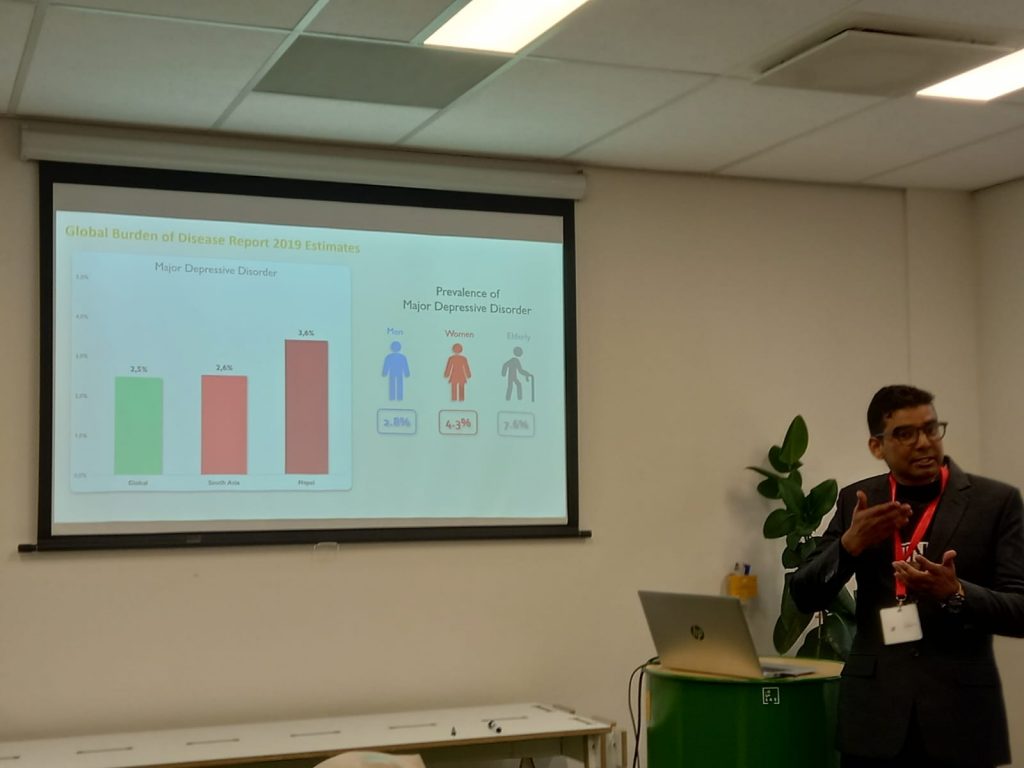
Presenter: Shreeman Sharma, HERD International, on behalf of Deepak Joshi, HERD International, Nepal
Contributors: Parash Mani Sapkota, Grishu Shrestha, Dr. Sampurna Kakchapati, Helen Elsey, Dr. Sushil Chandra Baral
HERD International presented a review of national policies to evaluate the status of mental health as a national priority as part of ongoing CHORUS Innovation Project on mental health. Although Nepal possesses a comprehensive health policy encompassing sections related to mental health conditions, there is an absence of a distinct mental health policy or mental health act. The team presented an analysis of the mental health burden in Nepal based on data from the Global Burden of Disease report 2019, National Mental Health Survey 2020, and a further analysis of the Nepal Demographic and Health Survey 2022 to ascertain mental health issues and associated factors among the youth population in Nepal. Furthermore, the team proposed a study plan aimed at addressing mental health concerns in selected urban areas of Nepal, with the initial focus on evaluating the mental health landscape and devising an appropriate intervention within school settings.
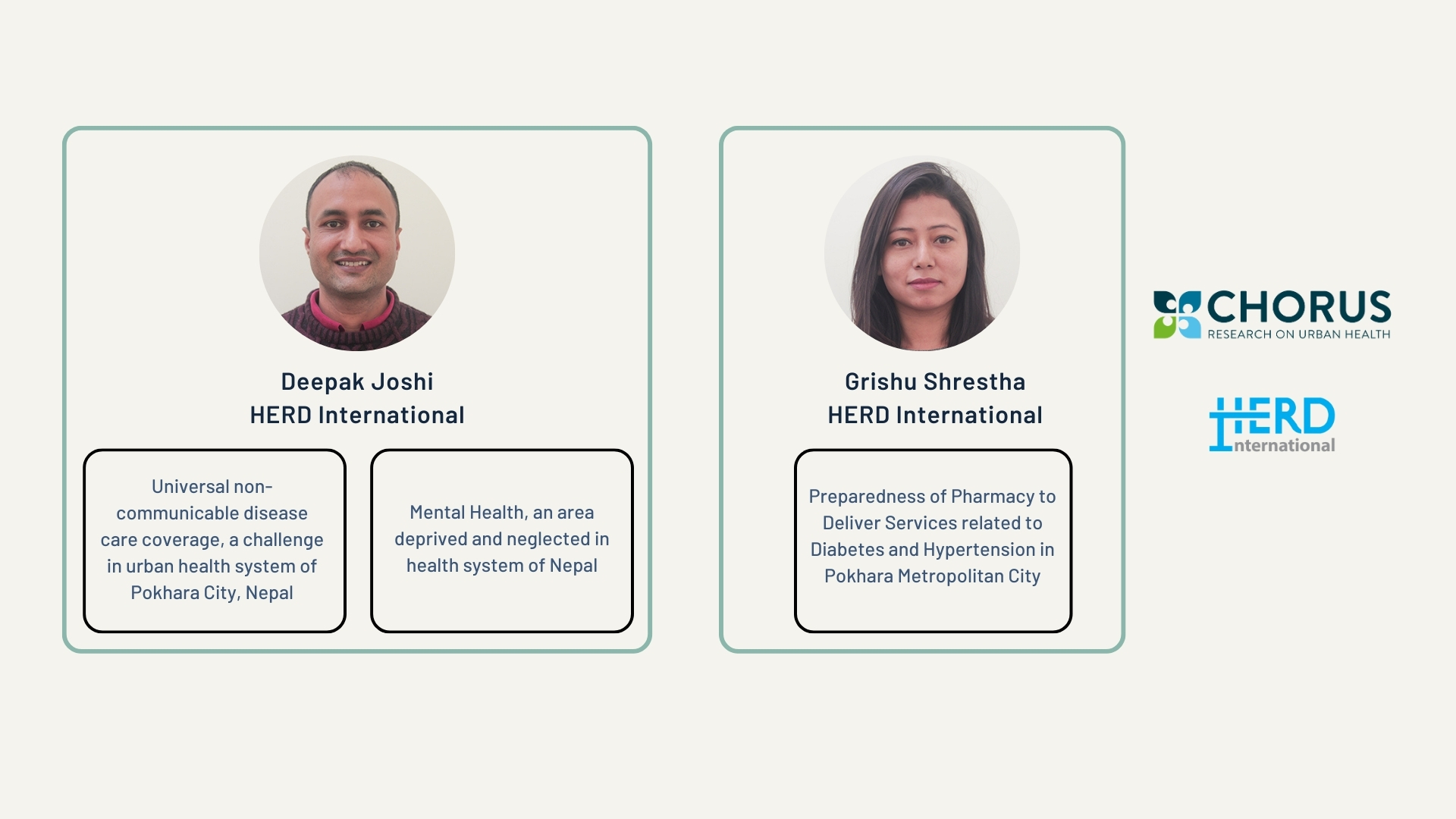



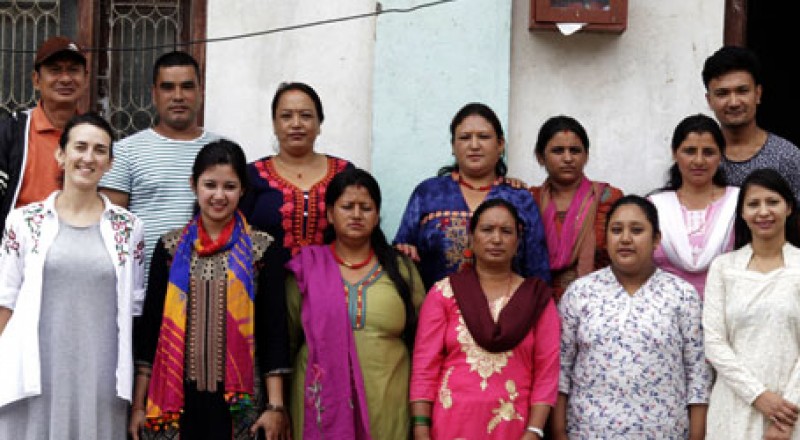

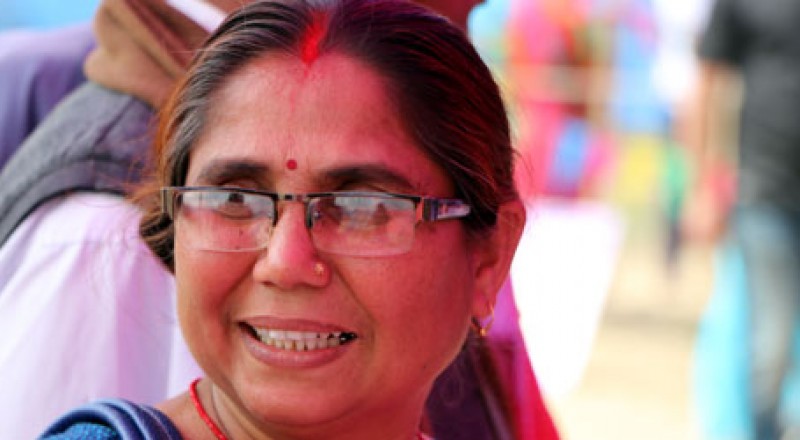




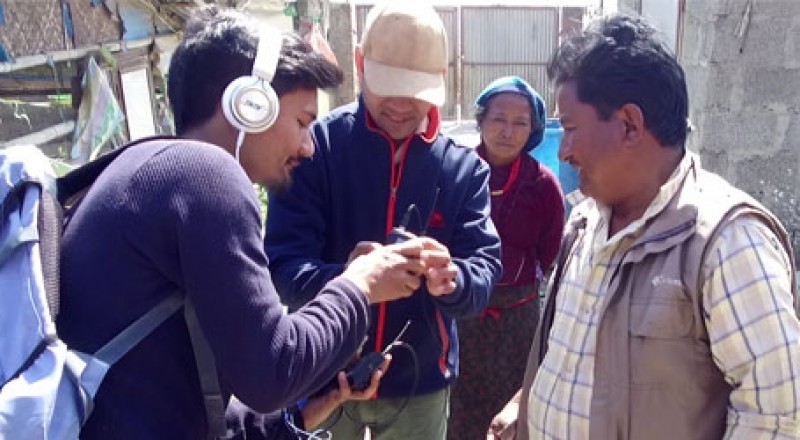
Comments (0)
No comments found.